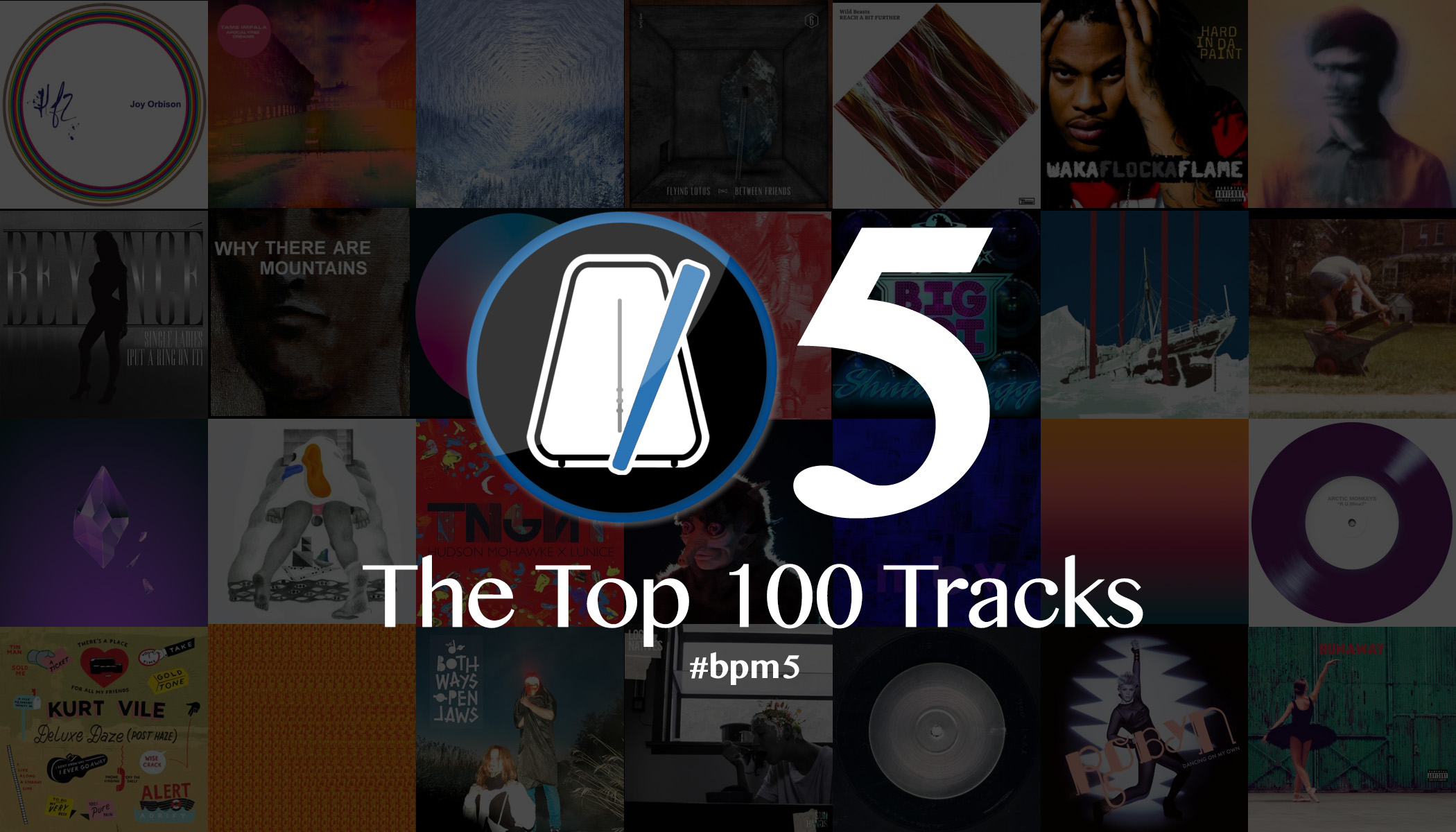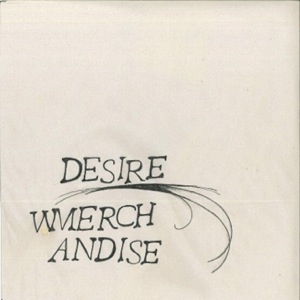
25
Merchandise
“Become What You Are”
[Katorga Works; 2012]
Merchandise’s 11-minute epic “Become What You Are” forms the centerpiece of their second album, Children of Desire. It’s a song indebted to krautrock in the way it marches relentlessly onwards through a forceful drumbeat, but also owes nods to shoegaze and dream pop in the way the glistening guitars roll and tumble around each other, forming an undercurrent that stays strong throughout. Carson Cox’s lyrics add to the mix, perfectly summing up the mid-20s outsider disillusionment towards life, touching on the his shortcomings and the failures of others, all delivered with a Morrissey-like tenderness that can’t help but draw you in, and with the guitars re-affirming themselves with more vigour between verses, the song’s suction becomes ever more powerful.
Halfway through, the song disintegrates into a passage of guitars and tinkling bells, leading the way into the song’s effervescent second half. It quickly builds up again, this time at a faster pace, with layers of feedback coalescing to form a simmering layer of static between the growling guitars and Cox’s heavenly wordless vocals. These elements boil together until the feedback has the quality of a low flying plane and Cox is repeating “Everybody hide, baby, everybody hide, I am terrified.” A wacked-out and wailing organ is added to the mix, recalling Stereolab at their most frenetic, as the brew churns faster and faster until the song is audibly unspooling with vocals, guitars, feedback and more all flying off in different directions. Finally the song vanishes into a black hole of silence, allowing the listener to relax and breathlessly reflect the previous 11 minutes of glorious rocking tumult.
– Rob Hakimian

24
Andy Stott
“Numb”
[Modern Love; 2012]
“Numb” is both the calm before the storm and the storm itself – a whisper-quiet track that slowly transforms into an oppressive, seismic rumble. It encapsulates every striking element of Andy Stott’s Luxury Problems into one precisely constructed track, and serves as both and intro to and a summation of the journey Luxury Problems takes its audience on. There hasn’t been another electronic artist quite as willing to trek so deep into the darkness as Andy Stott has, and “Numb,” brilliantly, fully submerges its listeners mere minutes into Luxury Problems’ runtime.
Pulling from electronic influences far and wide, “Numb” combines the down-tempo, the atmospheric, and the fragmented to great effect. It’s an anxiety-inducing slow crawl of muffled drones and frigid, fractured vocals, with a single, ominous, impossibly bass-heavy beat dropping in and shattering the track at its halfway mark. It’s rare that an electronic composition can be considered as hellish as it is angelic, but “Numb,” along with the rest of Luxury Problems, is exactly that – inhabiting a space that is equal parts strange, frightening, and beautiful.
– Cole Zercoe
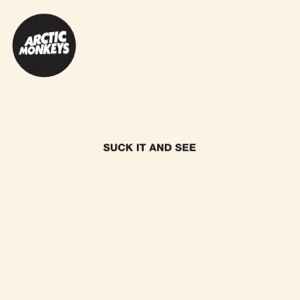
23
Arctic Monkeys
“That’s Where You’re Wrong”
[Domino; 2011]
Arctic Monkeys’ fourth album Suck It And See had more than a few hints of 90s alt rock nostalgia to it, mainly in its reliance on large-yet-simple hooks with grand and shiny guitar riffs to sell them. The closing track “That’s Where You’re Wrong” goes all-out for the album’s closing with some of the most sun-drenched, cascading and openly poppy guitars that the Arctics have ever employed. A simple two-chord affair that even includes a classic pare-it-back-to-bass-and-drums-before-launching-back-in-for-the-finale moment, it’s a knowing and easily handled victory lap on a damn fine album. But, not only is it a big and bright closing number, but the send-off message is tinged with Alex Turner witticisms and a typically interesting character portrayal of a girl “sitting on the floor with a tambourine, crushing up a bundle of love.” And his patronising lesson for her is something that we can all smile at and take something from: “Don’t take it so personally, you’re not the only one that time has got it in for, honey” before adding with an audible grin – “that’s where you’re wrong.”
– Rob Hakimian
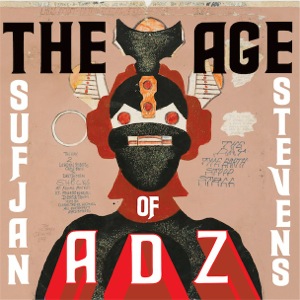
22
Sufjan Stevens
“Impossible Soul”
[Asthmatic Kitty; 2010]
On his sixth proper album, Sufjan Stevens developed a musical narrative around the paranoid ravings and drawings of self-styled prophet Royal Robertson. Dropping the clever folk aesthetics of most of his previous records, Stevens opted for a denser, more aggressive sound. Comparable to his 2001 instrumental album, Enjoy Your Rabbit, Stevens’ work on The Age of Adz once again favors deep basslines and throbbing electronics over his trusty banjo and acoustic guitar. At just over 25 minutes, album closer “Impossible Soul” is definitely in no hurry to get where it’s going. But this doesn’t result in a sloppy, catch-all aesthetic — though lord knows Stevens does try to fit everything in. Despite its lengthy runtime, the track never feels overstuffed or overlong. It’s a swirling miasma of harps, horns, electronics, call-and-response vocals, and some acoustic picking for good measure. Sitting somewhere between an aural stream of consciousness and the music that soundtracks your late-night, fast-food fueled nightmares, “Impossible Soul” sets us down in the chaotic mind of its inspiration and dares us not to close out eyes. It may not be pretty all the time, but it’s certainly a fascinating and intriguing glimpse into the manic cycle of creation. I think Robertson would approve of that.
– Josh Pickard
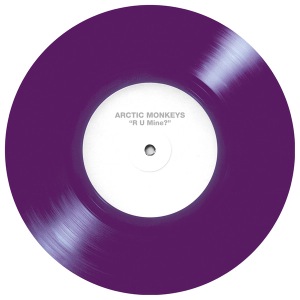
21
Arctic Monkeys
“R U Mine?”
[Domino; 2012]
Arctic Monkeys’ surprise Record Store Day release for 2012 laid out the entire blueprint for last month’s sultry AM. Flexing some muscle and reintroducing some snarl, “R U Mine?” was the second coming for Arctic Monkeys, a grab bag of what they do so well. With a thunderous riff at its heart, the vigorous musicianship speeds along with lyrical wizardry from Alex Turner: “She’s a silver lining/ Lone ranger riding through an open space/ In my mind when she’s not right there beside me/ I go crazy.” The band’s thirst for reinvention never sounded so daring or sexy, and earned a new generation of fans that missed looking good on the dancefloor.
– Brendan Frank
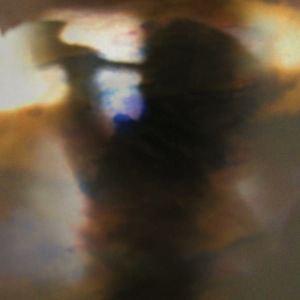
20
Animal Collective
“What Would I Want? Sky”
[Domino; 2009]
That “What Would I Want? Sky” wasn’t even close to being the best song Animal Collective released in 2009 should highlight what a blinding purple (and green) patch they were skipping through. And in a similar vein to the walls-melting aesthetic of Merriweather Post Pavillion‘s infamous cover, the track undulates in a hypnotic fashion, giving off the illusion of being half the actual runtime. It has all the signifiers of a class AnCo cut: the kaleidoscopic oscillations, densely layered sound (but not overstuffed in the way that rendered Centipede Hz cumbersome), ear-poppingly deep bass topped off with fluffy melodies, the tangible feel of being on a circus merry-go-round in 7/8 – you know the score. Avey Tare puts in one of his best vocal performances too, “weighted by thinking” but reigning in his more esoteric barks. And as with the best from the band’s extensive catalogue, even when slathered in copious amounts of Vaseline, the production positively fizzes with life. For many it’ll be forever tied to their golden year, but should still resonate years and years down the line. Who knows, maybe the sample will be re-flipped in turn by a neo-neo-psychedelic outfit on a breakout year in 2044? Either way, it’s an excellent song from an excellent EP, one of the most well-deserved and rewarding victory laps in recent music history.
– Gabriel Szatan
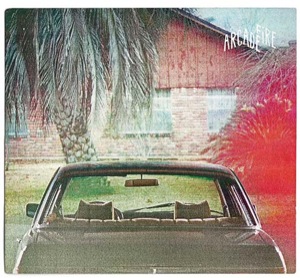
19
Arcade Fire
“Sprawl II (Mountains Beyond Mountains)”
[Merge; 2010]
The often anthemic rock spectacle of Arcade Fire pairs nicely with more intimate narratives of teenage angst and alienation – not the least of which is when it comes in the form of Suburbs-cut “Sprawl II (Mountains Beyond Mountains).” Hearing singer Regine Chassagne belt out lines like “we rode our bikes to the nearest park/ sat under the swings and kissed in the dark” and “they heard me singing/ and they told me to stop/ quit these pretentious things and just punch the clock” creates a definitive connection between our youth and that indeterminable period of time where we don’t quite feel comfortable in our own skin. This song juxtaposes the hesitation to move forward with the angst of knowing that stillness is stagnation, and the band imbues the music with such a forceful momentum that we’re given little choice but to hold our breathes and be swept along. A study in dense maximalist instrumentation, “Sprawl II (Mountains Beyond Mountains)” stands as a high water mark for a band who continues to find that sweet spot between artistic continuity and personal evolution.
– Josh Pickard

18
Joy Orbison
“Hyph Mngo”
[Hotflush; 2009]
2009 was the year dance music hit the reset button, and nothing represents that better than the effect the inaugural release by a 22-year-old with a goofy moniker had. A gigantic fucking line was drawn in the sand, but instead of delineating battle stations, it was one that connected what had been previously set out. I remember a snarky comment popping up while “Hyph Mngo” was doing the rounds at the tail-end of that summer as THE set/mix/party [delete as applicable] closing anthem of any jock worth their salt, along the lines of whether “this will spawn another UK genre of music – Deep-2step-tech or something equally ridiculous?” Chapeau to whoever made that absurdly prescient comment; one gold star. Given all that’s happened since, it’s kind of weird to think back to a time when the rhythmic nexus between house, dubstep and grime was still unchartered territory. But this was the Tutankhamen’s tomb’s moment, the Corps of Discovery laying eyes on the Pacific, the Hubble Telescope peering out and unveili—oh what, you think I’m being over the top? Got no words for you, bruv (well, >maybe some).
Look, whichever way you swing it (lightly syncopated on the drums, hurr hurr hurr), this unquestionably relaid the map for UK electronic music, the edifice upon which a dominant subdivision of ’10s clubland was built. You could use plenty of ways to describe the state of dubstep beforehand, it certainly wasn’t easily boxed-in: the Berlin-leaning, techno inclinations of Appleblim and Shackleton had an absorbing pulse; the zig-zagging G-funk appropriated by the Purple heads was vividly exciting; the crumbly spliff ends pushed out via the DMZ / Tempa set packed the spleen-rupturing, earth bassweight; but it was never beautiful as such. “Hyph Mngo” was light breaking through the clouds, marrying the pupil-dilating emotional rush of early rave with the chest-expanding two-note phased organ favoured by contemporarily out-of-favour garage progenitors to unreal effect. It still does the absolute business too – try suppressing a grin when the early washes curdle into the hook and Janet’s warped vocals rise once more. And what’s especially great is that Joy Orbison has stuck around, asserting himself as one of the finest producers out, hitting an especially fertile run in the past 18 months. But even if “Hyph Mngo” had proven a fluke, it would still to this day remain a bridge that will never be torn down, and a total joy to listen to at that. Ah. Perhaps the name wasn’t so daft after all.
– Gabriel Szatan
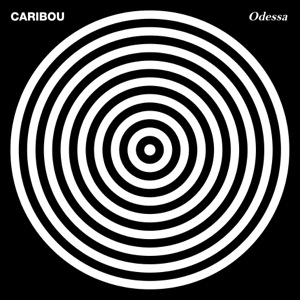
17
Caribou
“Odessa”
[City Slang; 2010]
Given the bromance between Kieran Hebden and Dan Snaith, that Swim and There Is Love In You came out within three months of one another can be viewed with a modicum of suspicion – it’s almost as if they had planned a brilliant one-two KO on the electronic scene, cementing their respective positions as key players in bona fide club music as opposed to more pastoral, chinstrokey territory. You’ll have to check back next week to see who bests the other in our album list, but it’s indisputable that Caribou came up trumps in the tracks. “Odessa” does all the right things in all the right ways, an infectious aural soup of jingling bells, wet kickdrum slaps, huge tom rolls, colourful production and a nagging vocal that we all wish actually did say “chicken steak.” It has everything you could ask for: eminently danceable, chantable (although perhaps less so than “Sun”), hooks in abundance and a breakdown right out of the top shelf. Already balls-deep into the groove, just when you think the track is operating at maximum capacity, suddenly it goes batshit mental and kicks into another gear. It’s a sheer masterclass, simple as that. Earlier in the year, I wrote about how our 100th favourite track is the newest entrant in a bracket of should-have-been-pop smashes – while “Odessa” never cracked the charts it gained widespread exposure across a number of platforms, so for a considerable amount of people its status as a crossover anthem is comfortably assured. Just as it should be.
– Gabriel Szatan
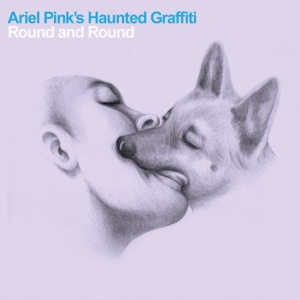
16
Ariel Pink’s Haunted Graffiti
“Round and Round”
[4AD; 2010]
It’s no secret Ariel Pink’s Haunted Graffiti can turn an outstanding pop song and it’s also no secret “Round And Round” is thanks to that ability. Since 2010, it’s oft been considered his best track, with its multiple choruses and grandiose harmonies packaged together in a piece package that feels slightly alien to his previous works. “Round And Round” to this day stands on its own–there’s not even anything quite like it on Mature Themes. It isn’t entirely different, however, there’s plenty of Ariel’s key tropes like answering a phone mid-song and things like “I’ll back you up as your frontman” that feel like him. “Round and Round” feels something like a myth; this wonderfully composed, gigantic song oozing with star power from a writer that didn’t show much interest in being a big face. The gentle nature of the situation makes “Round and Round” pretty hard to knock down and even easier to embrace in a world full of bands trying to make retro pop in the vein of Ariel Pink.
– Andrew Halverson

15
Japandroids
“The House That Heaven Built”
[Polyvinyl; 2012]
Japandroids seem like two men determined to prove that rock is not dead. Straight forward and in your face, their blend of old school rock with a touch of punk was equally refreshing as it was exciting. “The House That Heaven Built’ is the clear standout from sophomore album, Celebration Rock and possibly the best song of 2013. The raw power and honest emotion of the chorus, “When they love you and they will/ Tell em all they’ll love in my shadow,” is something that will pull at your heart regardless of your interpretation of the vaguer verses. Everyone has someone they will love and support no matter what, and the song has the ability to inspire not just a single emotion but a whole range of them running the gamut from happiness to sorrow. It is a powerful song from a band that keeps churning out anthems for this generation.
– Leslie Fernandez

14
Deafheaven
“Dream House”
[Deathwish; 2013]
If the past five years have taught us anything. it’s that you cant trust us music blogger types. Categorizing things has always been the easy way out of actually criticizing, so we end up with endless waves (be they of chill or vapor) of increasingly vapid microgenres. Black Metal obviously predates that conversation, but the need to drape the ascendant San Fran duo Deafheaven with that label speaks to the same desire for everything to fit into neat little boxes. “Dream House” rejects your fucking boxes. As much as the duo draws on the tropes of US Black Metal, “Dream House” turns them on their heads. Blast beats, tremolo picking and snarls coexist here, but the effect is not of overwhelming gloominess. Sunbather is a record of romanticism and “Dream House” is inhabited by as much love and light as it is death and darkness. So please, don’t call Deafheaven a fucking Black Metal band.
– Colin Joyce
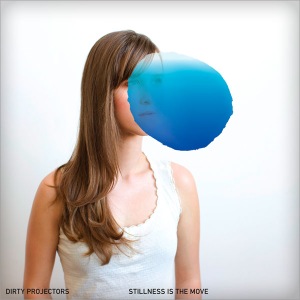
13
Dirty Projectors
“Stillness Is The Move”
[Domino; 2009]
The first single from 2009’s Bitte Orca, “Stillness Is The Move” is ostensibly a love song, but also ultimately a song that exposes the band to a larger audience, a song that helps an indie-rock loving audience fall for the band. On an album that was already building expectations and pressures, for the band to uncork an accessible, catchy, and sublime song like “Stillness” still makes some sort of crowning achievement. Amber Coffman’s cooing has never been more lovely and the band’s glitchy groove never so infectious. And after all the band has been through, including this brilliant piece of art, the band will certainly see it through to a long, tuneful career.
– Brian Hodge

12
Atlas Sound
“Walkabout (Feat. Noah Lennox)”
[Kranky / 4AD; 2009]
2009 was high time for Panda Bear. Merriweather Post Pavilion’s January release provided him a host of signature songs, odes to family and domesticity–to growing up. In that sense, Atlas Sound’s “Walkabout,” released the same year and featuring Noah Lennox under his birth name, was a weirdly warm cousin. Bradford Cox’s first explorations under that moniker, were quarantined bedroom Ableton explorations. Logos brought love and light and “Walkabout,” a sampler jam whose title and subject matter refer to an Aboriginal rite of passage. You go away and don’t look back. You go into the wilderness and find yourself. You lose yourself and find yourself again. As I’m writing this now, I’m realizing that BPM was our walkabout–or mine at least–and Cox and Lennox’s voices were our guiding lights.
– Colin Joyce

11
The Antlers
“Two”
[Frenchkiss; 2009]
Cancer is a bitch. Dying is a bitch. Simple enough universal message, right? But match that with a mysteriously thin-sounding guitar pattern and some cascading synths, add in some incredibly descriptive and knotty lyrics, and you have one of the defining indie-pop songs for the 2000s, a track that builds and towers through piano chords and rollicking drums and raw emotional pleading until it threatens to explode with the sheer weight of its poured-out emotions. Peter Silberman dribbles words like leaked blood on a hospital floor, first in a ghostly wail, then a tortured moan as “Two” sails for the ceiling and through it to the stars. Not just devastating emotionally, but musically as well, “Two” is a highlight on an album full of them, Hospice‘s most obvious centerpiece and most immediate tune, as well as its most scarring and unforgettable. Outside of the cancer storyline, “Your Daddy was an asshole / he fucked you up” may be one of the most relatable, straightforward lines of angst in indie-rock history. “Two” transcends WB Drama shlock entirely, and manages to be both beautiful and grimly real, a feat that The Antlers have only perfected as time has gone on. Still, they’ve not yet topped “Two” for pure emotional-rollercoaster soul-bearing, and maybe that’s for the best. This is the kind of song you don’t have in you to write over and over again. Once is entirely enough.
– Zach Corsa
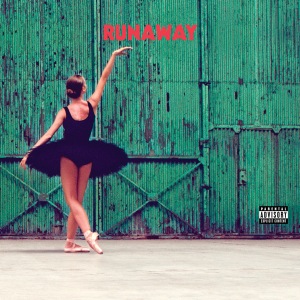
10
Kanye West
“Runaway”
[Roc-A-Fella / Def Jam; 2010]
When Kanye West debuted “Runaway,” the second single from My Beautiful Dark Twisted Fantasy, back at the 2010 VMAs, we were supposed to be excited because it was a “response” to the previous year’s Taylor Swift fiasco that MTV was still trying to play up for ratings. But the beauty of “Runaway” is that it resonates beyond this incident: it can be viewed as a culmination of everything we’ve learned about Kanye—and, for that matter, everything he’s learned about himself—in the years since the death of his mother radically shifted his career track. He’s still arrogant as hell, but now he’s looking inward and recasting his most fundamental personal flaws as strengths. Plus, it’s not every day a song with a four-minute vocoder solo becomes a hit on mainstream rap radio.
– Sean Highkin
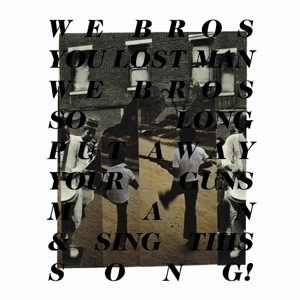
9
WU LYF
“We Bros”
[L Y F Recordings; 2011]
“We Bros” should be the anthem of guy friends everywhere. It doesn’t matter that most of the lyrics are unintelligible, the Manchester accent might be hard to decipher but its chorus is clear as day and instantly catchy. It’s honestly difficult to not sing along and even more so if you’re in the company of some ‘bros. It is six minutes of testosterone filled pure bro bonding moments that rise and drop perfectly, with a final chorus that will have you shouting from the rooftops after a night of revelry.
– Leslie Fernandez
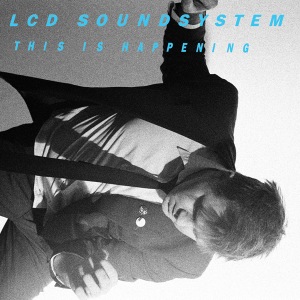
8
LCD Soundsystem
“Home”
[DFA / Virgin; 2010]
The flickering guitar, the fluttering synth line, the perfectly weighted toms, the lilting woodblock, the infectious bassline – this has to the closest natural successor to “This Must Be The Place (Naïve Melody)” going, right? A lifelong member of the Genius Steals club, here James Murphy actually manages to borrow from himself, pinching the impassioned “aaahs” from “Dance Yrself Clean” to bring This Is Happening to a winsome, cyclical end. It does more than that, though – that “Home” wound up the final track on the final LCD release was no accident. All talk of “your last chance now” and how to “get old and stay old” show that he retains that referential smirk even while penning his own obituary. As delightfully spry as the instrumentation obviously is, ultimately Murphy’s singing steals the show; you can almost picture him belting out his falsetto of “you’re afraid of what you need” like a drunk reasoning with himself, ready to call time. The track winds down from a saunter to a stagger, slowly shedding components like clothes as it clambers into the home stretch before finally bringing the curtain down, exhausted but utterly triumphant. All told, it might well be the best song Murphy has ever laid to tape, a fitting epitaph for one of most of astute social commentators of the 21st century. “It won’t get any better,” indeed.
– Gabriel Szatan
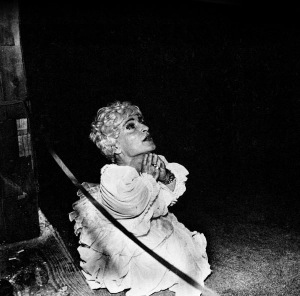
7
Deerhunter
“Desire Lines”
[4AD; 2010]
Despite having to play second fiddle to the overly active mind of Bradford Cox, we know that Lockett Pundt is a talented fellow. The songs he writes for his solo project Lotus Plaza carry themselves with simplistic elegance, the kind that pours from an intuitive songwriter. His tracks seem to roll off the tongue a little easier than Cox’s. “Desire Lines” is the type of song that has been caught in that logjam in your brain for what feels like forever before Pundt knocked it loose. Colossal guitars and cavernous drums light the way, but it’s the attention to detail that keeps you coming back; the distant, acutely melodious backing vocals; the needlepoint krautrock outro; the simple but selfless lyrics. “Whatever goes up must come down,” insists Pundt, but “Desire Lines” never does.
– Brendan Frank
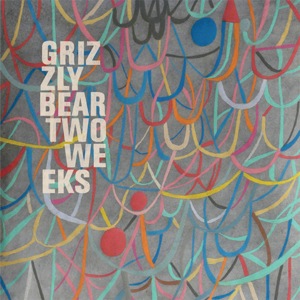
6
Grizzly Bear
“Two Weeks”
[Warp; 2009]
What can be said about “Two Weeks” that hasn’t been said already? Critics and internet fans latched themselves to the slyly sugary staccato piano riff and delicious vocal harmonies when the track was released in 2009, and it’d be hard not to accuse someone of being a liar if they said they still didn’t get a rush from the track four years on. Yes, hearing it might automatically bring to mind images of the band’s creepy and exploding faces, and yes, you might resent that same band for letting a couple of car companies use it, allowing the hooks of the song to verge on overplay, but how can you deny that just isn’t a superbly constructed song. Everything – from Chris Taylor’s unmatchable bass riff to those subtle but essential backing vocals from Beach House’s Victoria Legrand – is so wonderfully weaved together, it’s hard to think of another song that has lasted so well from 2009. All of which, of course, has been said about “Two Weeks” before, but sometimes the superlatives bear repeating.
– Ray Finlayson
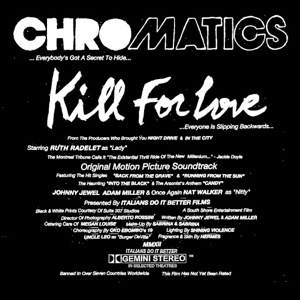
5
Chromatics
“Kill For Love”
[Italians Do It Better; 2012]
For all intents and purposes, the cover of “Into The Black” that opens Chromatics’ gargantuan album Kill For Love is just a prelude of sorts; it’s the second and title track that kicks things off properly, introducing the neon synths that colour the album as well as the sinister themes. Ruth Radelet’s beautiful voice flutters so gracefully through the verses that it’s easy to miss what she’s actually saying: “Everybody’s got a secret to hide” she begins, and continues down this gloomy path telling us she “took a pill almost every night,” and the darkness remains until she reaches the repetition of the titular line “but I killed for love.” Just as you realize that something’s a little amiss here those fist-thumping synths clock you round the head in a wordless euphoria taking away any thought other than ‘dance!’ and after two measures of tireless bouncing it ratchets up the stakes even higher. This bipolar song manages to combine depression and joy seamlessly, leaving you a little breathless, but ready to indulge in the remaining 83 minutes of the album.
– Rob Hakimian
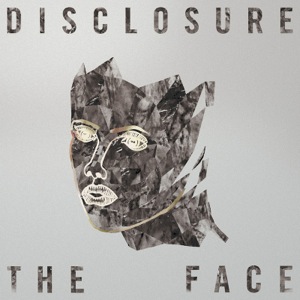
4
Disclosure
“What’s In Your Head”
[Greco-Roman; 2012]
The narrative that’s followed Disclosure for most of 2012 revolves around where the British duo of Guy and Howard Lawrence came from and where they’re going. But “What’s In Your Head” is a distilled and singular moment for the brothers. It’s the rare track that bottles the very core of a feeling of such vibrance and breathless energy that the world in which it exists feels like it’s been put on hold. It’s the feeling of the dance floor’s high built up and disassembled in the space of five and half minutes. Each tiny dimension of the track has been dusted and swept, all the surfaces sanded smooth and polished, and all the lingering oxygen vacuumed out. There’s only enough left to breathe. Every second of “What’s In Your Head” feels endlessly pondered and meticulously crafted with its intricate primary-colored pinwheel of vamping synths, fragged vocals, porn samples, and click-snap drums, yet it has the acrobatic dexterity of a DJ glued to the controls. And then there’s the vocal hook, oh sweet baby Jesus, that vocal hook. The sample is cut up into a syncopated bombing run and spun into a thrilling puzzle piece amalgam like a cracked statue bursting and reassembling in cyclonic formation, all in the space of a measure.
– Will Ryan
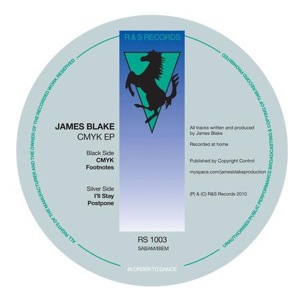
3
James Blake
“CMYK”
[R&S; 2010]
We’ve all heard it. Whether spliced with grime at 3am or nestled between softer torch songs in a surprisingly mighty live retooling, jolted into memory via the original or just experienced as a standalone, we have all heard it. We’ve all felt that sense of glee as the intro begins creeping up, the immense release as the drums steamroll into the shuddering breakdown, popping like cans of paint exploding, all (probably) tried at some point to match the wild pitch-shifting in the final run — I know I have at least. And what’s weird is no-one seems to be sick of it yet. One of the strangest songs in recent times to garner near-universal acclaim, shed of context or removed from surroundings it stands up; any environment, any time. Club ubiquity has obvious benefits but can be fleeting (s/o Joker). Sticking power can prove much trickier. Tonight, like all 1232 nights since “CMYK”‘s release revitalised R&S’s recent resurgence, it’ll be heard flattening dancefloors the world over. And really, that’s the mark of a true classic.
– Gabriel Szatan

2
Animal Collective
“My Girls”
[Domino; 2009]
On its surface, “My Girls” is a fairly straightforward song. It’s about the band’s desire to have a place to call their own, a place to raise a family, and the ability to provide a certain level of comfort and security for those they care about. But those glittering synths, the catchy chorus, that infectious “whoo!” all those unique elements add to up to form a seminal song that ushered in a new era of indie-electro pop, if not music writ-large. Beginning with simmering synths, the song builds slowly behind Noah Lennox’s vocals. The rest of the Collective trickles in, layering texture and harmonies to the tapestry before that pulsing bass and percussion kick in fully. And just as the song gets to the memorable chorus (and that participatory shout of jubilation), the band has burst to lofty heights. Backed by the success of the single, Merriweather Post Pavillion sold more than 200,000 copies and became one of the year’s most well-reviewed albums, propelling the band from art-rock outskirts to indie darlings. Whoo!
– Brian Hodge
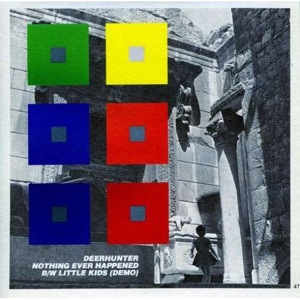
1
Deerhunter
“Nothing Ever Happened”
[Kranky / 4AD; 2008]
“It’s the newest-sounding Deerhunter song; it’s more complex without trying to be technical,” Bradford Cox said of “Nothing Ever Happened” during the recording of Microcastle. On the final product “Nothing Ever Happened” has the task of pulling the album out of the sonically and emotionally murky quagmire of the mid-album suite, and it does so extraordinarily, grabbing the listener by the reigns and dragging them along on a galloping bass and drum-led escape. It started with a demo created by their then-bassist Josh Fauver that was quickly and collaboratively built up into a scorching hulk of modern kraut-rock. From the effective hurdling intro we’re soon introduced to the interplaying guitars of Cox and Lockett Pundt, one’s growling and the other’s melodic twists, while Cox’s lyrics speak of someone who’s letting the world pass him by, and with the speed that the song is starting to heat up and coagulate you can see his life passing uncontrollably before his eyes. The six-minute song’s latter half dispenses with the words, and allows the drum and bass to hold down the fort while the guitars start to seriously glow and burn, with Cox reeling off into a seething fret solo threaded through various effects, before it all comes to a smouldering close. “Nothing Ever Happened” is the sound of a band firing on all cylinders, and a perfect conglomeration of all of Deerhunter’s qualities: blistering guitars, hypnotic fuzz, haunting lyrics, unpredictable and unstable direction, and ghostly and effective details to sound. Overall “Nothing Ever Happened” is a song that can be played time and time again without losing any of its white-knuckle thrills, even five years on from its release.
– Rob Hakimian
[The Top 130 Albums] [The Top 30 EPs]

